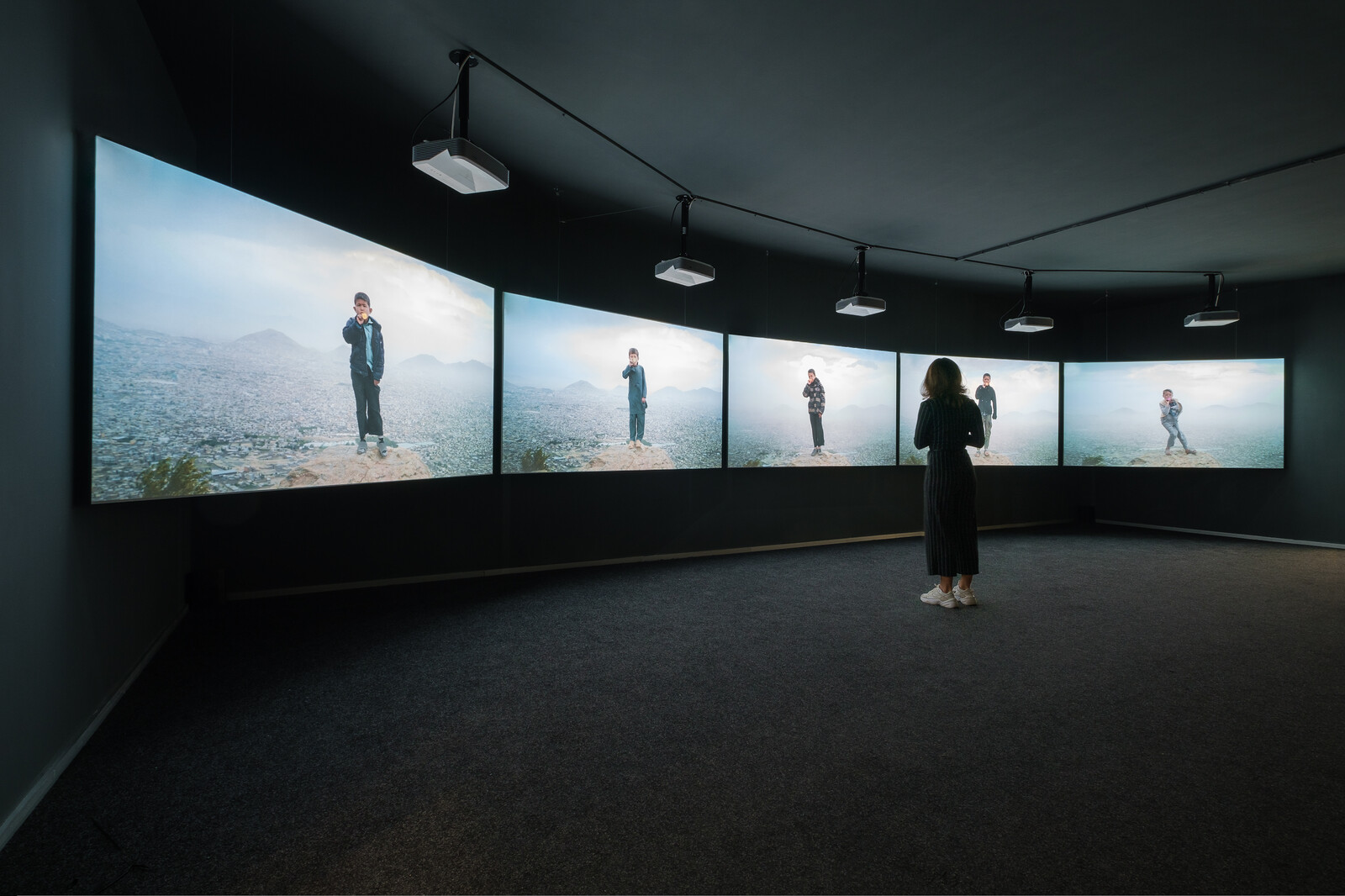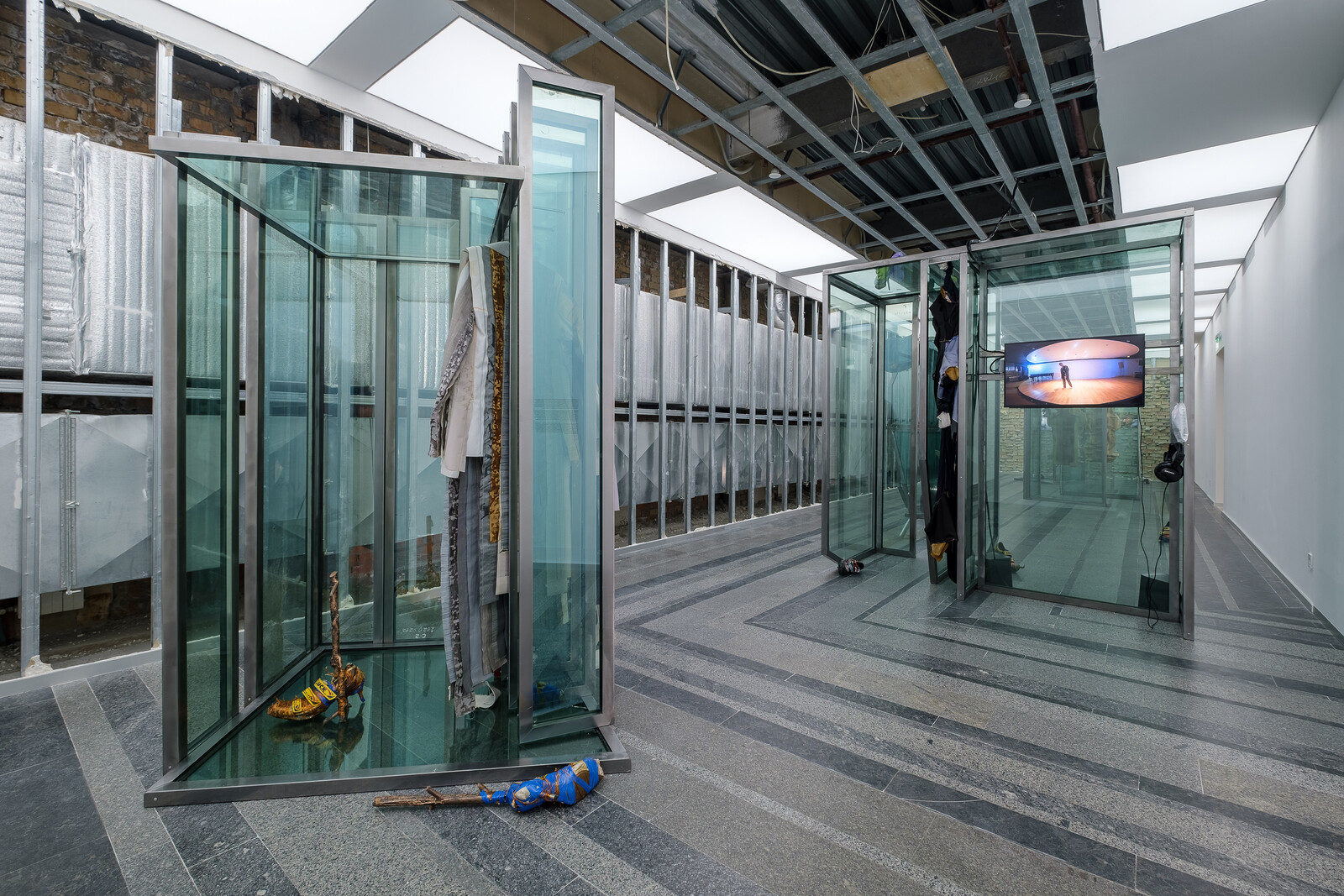1/3-2, “А” Block, Velyka Vasylkivska/Baseyna Str.
Kyiv
01004
Ukraine
Hours: Wednesday–Sunday 12–9pm
T +380 44 590 0858
info@pinchukartcentre.org
Aziz Hazara (Afghanistan) is the winner of the Future Generation Art Prize 2021, the sixth edition of the global art prize for artists under 35, established by the Victor Pinchuk Foundation in 2009. The winner was announced by the international jury at the online award ceremony on 8 December. Aziz Hazara received a total of 100,000 USD: 60,000 USD as a cash prize, and 40,000 USD to fund their artistic practice.
An additional $20,000 was awarded between Special Prize winners Agata Ingarden (Poland), Mire Lee (South Korea) and Pedro Neves Marques (Portugal).
The winners were chosen by the prize’s distinguished international jury, consisting of: Lauren Cornell, Director of the Graduate Program and Chief Curator at the Center for Curatorial Studies, Bard College; Jacopo Crivelli Visconti, Curator of the 34th edition of the Bienal de São Paulo; Elvira Dyangani Ose, Director of the Museu d’Art Contemporani de Barcelona; Bjorn Geldhof, Artistic Director, PinchukArtCentre; Shilpa Gupta, Artist; Ralph Rugoff, Director of the Hayward Gallery and Artistic Director of the 58th Venice Biennale of Art; Eugene Tan, Director of the National Gallery Singapore and the Singapore Art Museum.
Addressing the young artists Victor Pinchuk, founder of the PinchukArtCentre and Future Generation Art Prize, said: “Nobody can tell us better about this world than great, especially young, emerging artists. You are able to express the future of this world much better than politicians can. My belief is that contemporary art is one of the most revolutionary forces in the world. That is why I think your role is so important. You can influence and help us to change this world. We can survive only if we change this crazy world with its very dangerous and unpredictable future.”
The jury unanimously granted the Future Generation Art Prize 2021 to Aziz Hazara. Commenting on his win, they said: “An exceptional and sophisticated multi-channel installation, Bow Echo stands as an ephemeral and compelling monument in our present moment. The five-channel video work features five boys, one per screen, each pictured against the mountainous landscape of Kabul as they attempt to resist the wind while blowing a bright plastic toy bugle—a gesture of remembrance and mourning that doubles as an urgent call for attention to a perilous situation. In an original composition, their sounds compete with the wind and the din of nearby drones, alternately muffled and then breaking through, sliding in and out of a unified chord into dissonance. The piece holds many paradoxes in a simple scene: the playfulness of childhood, the limitlessness of grief, the conquest of land and territory, and the precarity of the future. In a sense, the piece identifies not only a future-facing tendency in art but a concern for future generations that was shared by many artists in this year’s Future Generation Prize. Touching on cinema, performance, and sound, Bow Echo offers a striking time-based monument to resilience and hope for a geography that has, for many generations, remained under the pressure of various forms of failed governance. At the same time, the piece shows how artists continue to imagine complex independent ways of existence even amidst conflicts that seem never-ending.”
All the shortlisted artists will take part in the Future Generation Art Prize 2021 @ Venice group exhibition organised by the PinchukArtCentre as an official Collateral Event of the 59th International Art Exhibition at Scuola Grande della Misericordia.
The shortlisted artists of the Future Generation Art Prize 2021: Alex Baczynski-Jenkins (UK), Wendimagegn Belete (Ethiopia), Minia Biabiany (Guadeloupe), Aziz Hazara (Afghanistan), Ho Rui An (Singapore), Agata Ingarden (Poland), Rindon Johnson (US), Bronwyn Katz (South Africa), Lap-See Lam (Sweden), Mire Lee (South Korea), Paul Maheke (France), Lindsey Mendick (UK), Henrike Naumann (Germany), Pedro Neves Marques (Portugal), Frida Orupabo (Norway), Andres Pereira Paz (Bolivia), Teresa Solar (Spain), Trevor Yeung (China), and artist collectives Calla Henkel & Max Pitegoff (US), Yarema Malashchuk and Roman Khimei (Ukraine), and Hannah Quinlan & Rosie Hastings (UK).





